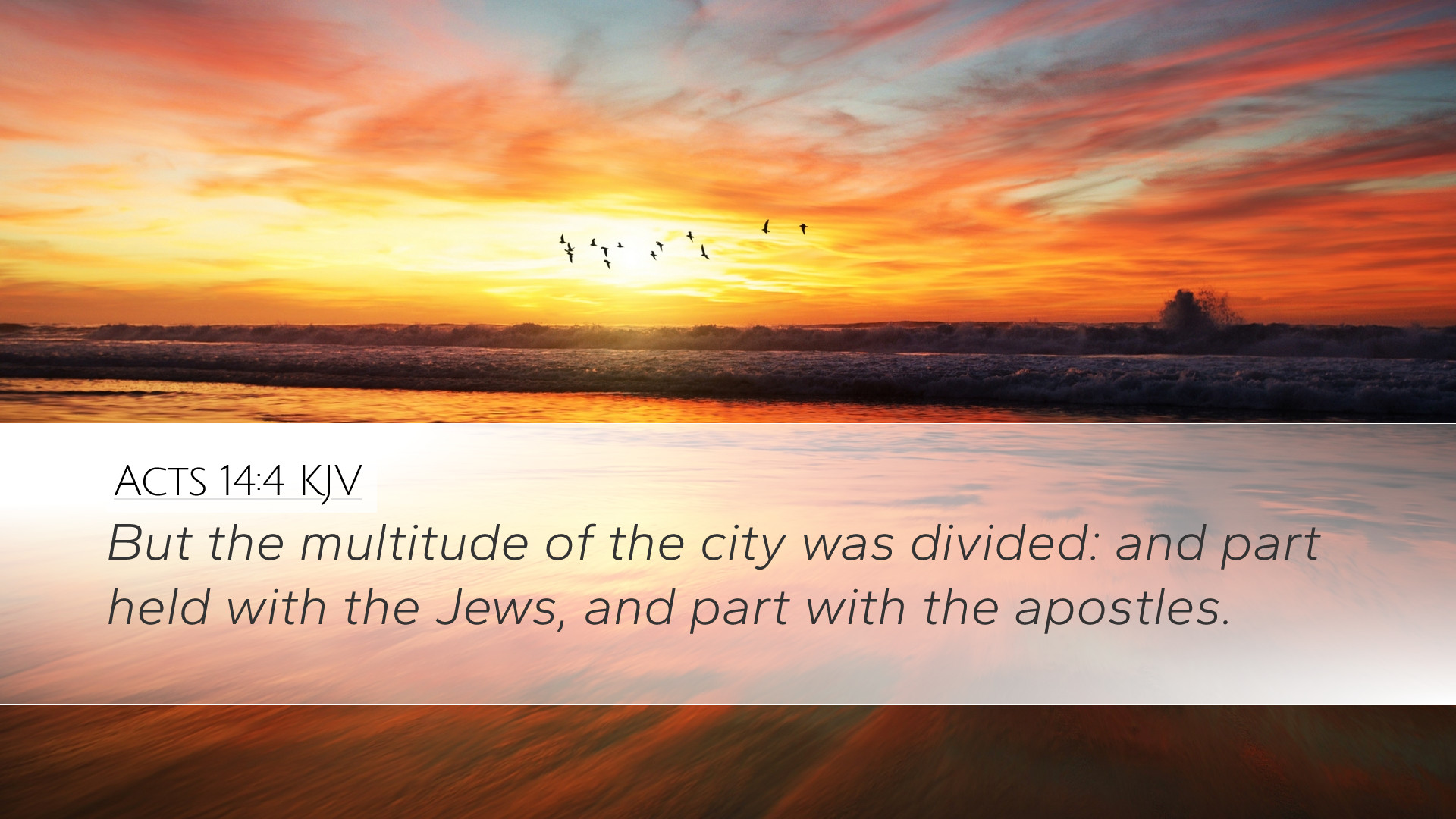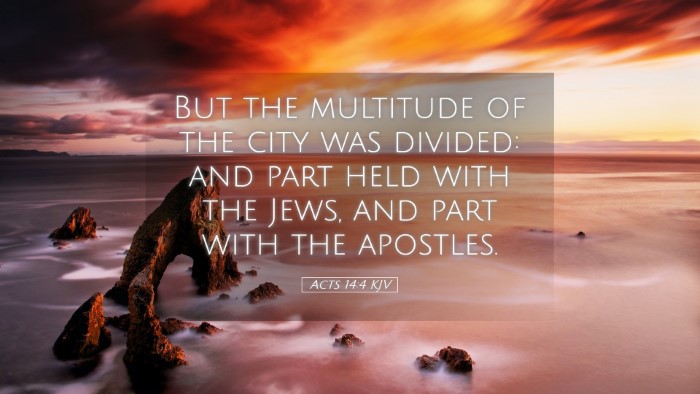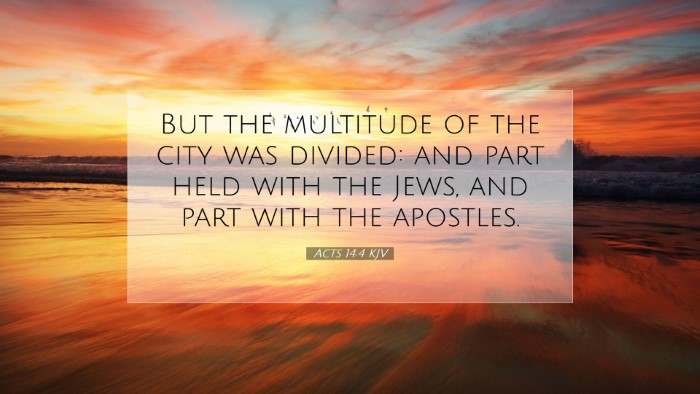Commentary on Acts 14:4
Acts 14:4 states: "But the multitude of the city was divided: and part held with the Jews, and part with the apostles." This verse provides a significant commentary on the early church's experience in the face of opposition and the unfolding of the Gospel.
Context and Background
The broader context of Acts 14 details the apostolic journeys of Paul and Barnabas, particularly their work in Iconium, a city marked by diversity and tension. The early church was characterized by both miraculous signs and growing divisions among the populace.
Division Among the People
This verse highlights a critical moment—the division of the populace. There are a couple of notable insights from renowned commentators:
-
Matthew Henry: He explains that the division was typical in the early church, as the preaching of the gospel often divided people.
"The gospel is a sword that sets people at variance," he notes, emphasizing that truth often creates conflict.
-
Albert Barnes: He elaborates on the nature of this division, implying that it reflects the reception of the Gospel message.
"In every place where the Gospel is preached, there will be, and there must be, a division; the message brings to light people's true disposition towards God."
-
Adam Clarke: Clarke remarks that this division is indicative of both the power of the apostles' message and the resistance it faced, suggesting that "true faith often meets with oppositional forces."
The Role of Miracles and Teachings
Prior to this verse, the apostles were working miracles and preaching Jesus of Nazareth, which stirred both awe and resentment. Understanding the impact of their works can enhance our comprehension of this verse.
-
Matthew Henry:
"Miracles were intended to authenticate the message of the apostles. Where signs and wonders are performed, there can be no neutrality."
-
Albert Barnes: He elucidates that the miracles significantly contributed to the infighting as those who did not believe used the miracles as a springboard for dispute:
"The miracle worker is always a target for those who would rather remain in the shadows of disbelief."
Theological Insights
This division is not without theological implications. It speaks to the nature of faith and the human heart in responding to divine revelation:
-
Matthew Henry emphasizes that, "The division among the people illustrates the multifaceted nature of faith. Some were drawn to the apostles through enlightenment, and others were blinded by tradition."
-
Adam Clarke states, "Every presentation of the Gospel leads to a response; either faith or doubt. Every heart is either drawn to the light or repulsed by it."
Implications for Ministry
For pastors and theologians, this division serves as a reminder of the challenges faced in ministry:
-
Community Dynamics: Understanding that preaching the Gospel can create division is essential for dynamic ministry.
Henry reflects, "Leaders must brace themselves for the inevitable conflicts that may arise from truth."
-
Expect Resistance: As Paul and Barnabas faced division, ministers today should expect and understand that preaching the truth of Christ will often provoke opposition.
Barnes warns us that "opposition should not deter us, but propel us towards deeper reliance on God."
Conclusion
Acts 14:4 serves as a microcosm of the early church experience, embodying the tension between light and darkness. The commentary from recognized scholars provides valuable insights for understanding the theological depth, community dynamics, and pastoral implications of this division.
In the end, the exhortation remains clear: advance in truth knowing that division may be the cost of discipleship, and to be firmly anchored in the grace of God amidst the complexities of ministry.


